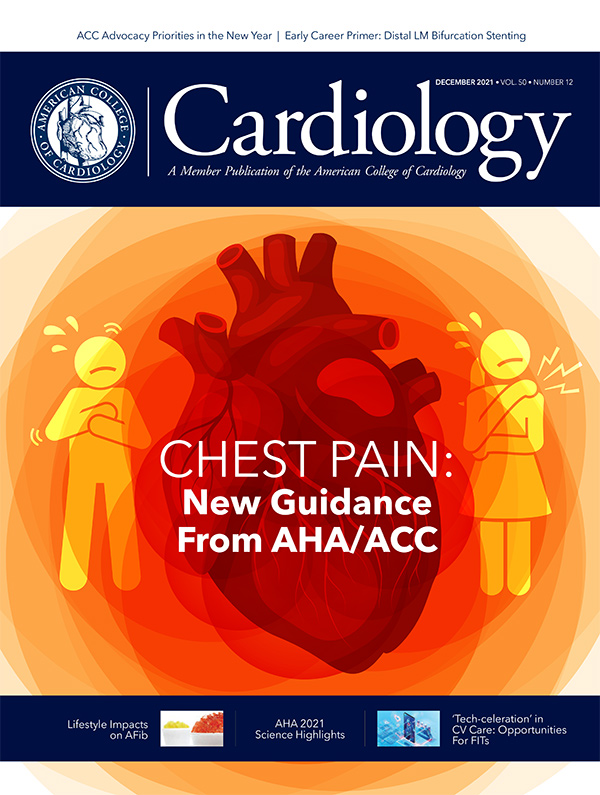Heart of Health Policy
Medicare Stability, Health Equity Among Key ACC Advocacy Priorities in 2022
As we head into 2022, ACC Advocacy will be more important than ever as the entire cardiovascular care team and the broader house of medicine continues to experiment and rethink how to deliver the highest quality care to all patients based on the many lessons learned from the COVID-19 pandemic. Several issues will be on the table in the New Year, including building the pathway to the future of Medicare and health equity.
Several potential Medicare cuts, slated to go into effect on Jan. 1, have been top of mind. Reductions to Medicare payment threaten patient access to critical cardiovascular care at a time when it's needed the most. Cardiovascular patients are among those at greatest risk to COVID-19 and many have delayed care due to the pandemic. Significant Medicare cuts could lead to closures of smaller and rural clinics, reduced clinic hours, and even staff reductions that would further impact care and outcomes in this highly vulnerable patient population.
The Health Affairs Committee and the ACC Advocacy Team have been working together to seek Congressional action to stop and/or mitigate these cuts, while at the same time continuing our work to convene government, regulatory and payer stakeholders to imagine and develop approaches to advance meaningful reform and value-based care solutions that provide sustainability and improved outcomes for our patients and our health care system. The added support of ACC State Chapters and the direct messages to members of Congress from hundreds of ACC members, along with the expertise of our Partners in Quality Committee and Population Health Management Work Group, are vital to this work. One of the key takeaways from the COVID-19 pandemic is to never underestimate the power of advocacy and the power of a community coming together around a common purpose and mission.
The burden of prior authorization is another issue that remains at the forefront of the ACC Advocacy agenda. Excessive administrative tasks that are not central to direct patient care can lead to delayed or missed care, as well as clinician dissatisfaction and burnout. Our work with the Regulatory Relief Coalition, payers, our partner cardiovascular societies and other stakeholders to advance solutions to prior authorization will continue to expand. Ongoing state and federal solutions, including legislation like the bipartisan Improving Timely Access to Care Act, will be paramount.
The COVID-19 pandemic has also thrown into even starker relief the issue of health equity and underscored the impacts of race/ethnicity, geographic location, income, education and other social determinants on the health of populations. Our ongoing advocacy around issues like research funding, graduate medical education, targeted prevention programs, telehealth access, peripheral vascular disease, cardiovascular rehab and more, can all play important roles in the College's broader health equity efforts.
There is a lot to be done, in 2022 and beyond, but I am energized by the prospect of what we can achieve together in advancing health policy solutions that optimize cardiovascular care and outcomes for the patients that we have taken oaths to protect.
The reality is cardiovascular disease is the leading driver of mortality in the U.S. and globally – a vital statistic we must ensure the public, state legislators and members of Congress are aware. As we continue to deal with the ramifications of COVID-19, our role in advancing solutions that will optimize patient care and improve heart health has never been more important. We own the problem. We own the solution.
This article was authored by Samuel O. Jones, MD, MPH, FACC, Chair, ACC Health Affairs Committee.
CAROL Act Passes in the House
The ACC-championed Cardiovascular Advances in Research and Opportunities Legacy (CAROL) Act unanimously passed through the U.S. House of Representatives on Dec. 8. The bill now moves to the U.S. Senate, where Senate Republican Leader Mitch McConnell (R-KY) and Arizona Sen. Kyrsten Sinema (D-AZ) have introduced a companion bill.
FDA Alert: Micra Transcatheter Pacing System
The U.S. Food and Drug Administration (FDA) has issued a letter to providers warning about a risk of major complications if cardiac perforation occurs during implantation of the Medtronic Micra Transcatheter Pacing System. The Micra leadless pacemaker was approved by the FDA in 2016 and is the only approved and marketed leadless pacemaker in the U.S.
Keywords: ACC Publications, Cardiology Magazine
< Back to Listings

